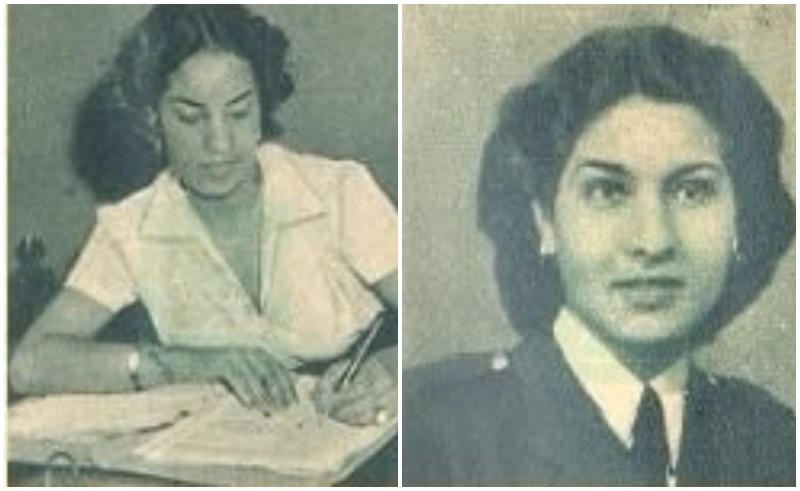These Egyptian Police Officers Are 2 of the First Women to Ever Join Egypt's Police Force
As Egypt mourns its first female police officer to die on duty, we learn about two of the first Egyptian women to take the daring step of wearing their police uniforms proudly.

Amid reports of Brigadier-General Nagwa Al-Nagar declared Egypt's first female police to die on duty, after she lost her life to the terrorist attack at Alexandria's St. Mark Cathedral, we stumbled upon an outstanding report by Archive Egypt on some of the first women to ever join Egypt's police. According to a 1953 journalistic interview with Second Lieutenant Qasema Ahmed and First Lieutenant Atteyat Mohamed Khalil, two of the first women to join the ranks of Egyptian police, both stories take place from mid-to late 40s, in monarchical Egypt, through to the 1950s, the early days of the republic.
Although they graduated from the same class, each had a drastically different story; after getting a degree in cultural studies, Qasema Ahmed sent a letter to Alexandria's Police Commander requesting an appointment in the commandment in an administrative position. After she passed the medical and background check, she was hired as a reports' writer in Alexandria's Police Force. Ahmed outperformed her male peers and showed precision and accuracy in her reports, which prompted her promotion to join the ranks of the force as a Constable, gaining the right to be one of the first Egyptian women to bear the police uniform. The decision to promote her, however, was fought back by her male colleagues, who deemed her incompetent because of her gender. Briefly after, evidence of her outstanding performance and dedication became overwhelming, and she was re-appointed as a Constable despite the backward objection to the decision.
With a different set of challenges and a little help from the magical powers of coincidence, a poor and uneducated Alexandrian woman by the name of Ne'mat Hassan started considering working after her life deteriorated to an unbearable level. After hearing from a relative in a casual conversation about open vacancies in Alexandria' Police Force, she applied for an administrative position in the investigative department. Due to male-centred legislation at the time, women working in the police had to be unwed, and they were also dismissed from the force in case they decided to get married. That's why upon her engagement, Hassan wrote a letter to Egypt's President Mohamed Naguib, demanding to remain in her position, which he later approved. Throughout her career, Hassan gained an excellent reputation for her performance and integrity, which earned her an invitation to join the investigation team of the Faulty Weapons Case, one of the biggest corruption scandals involving Egypt's deposed monarchy at the time.
Since then, Egyptian women have only climbed higher up in the ranks of the police, though their numbers are still small. Nagwa El-Nagar's tragic death only proves that Egyptian women have not only defied traditions and stood on their own two feet, they now also stand shoulder-to-shoulder with men right on the battlefield knowing that death might be a consequence of that choice, and determinedly accepting that risk.
























